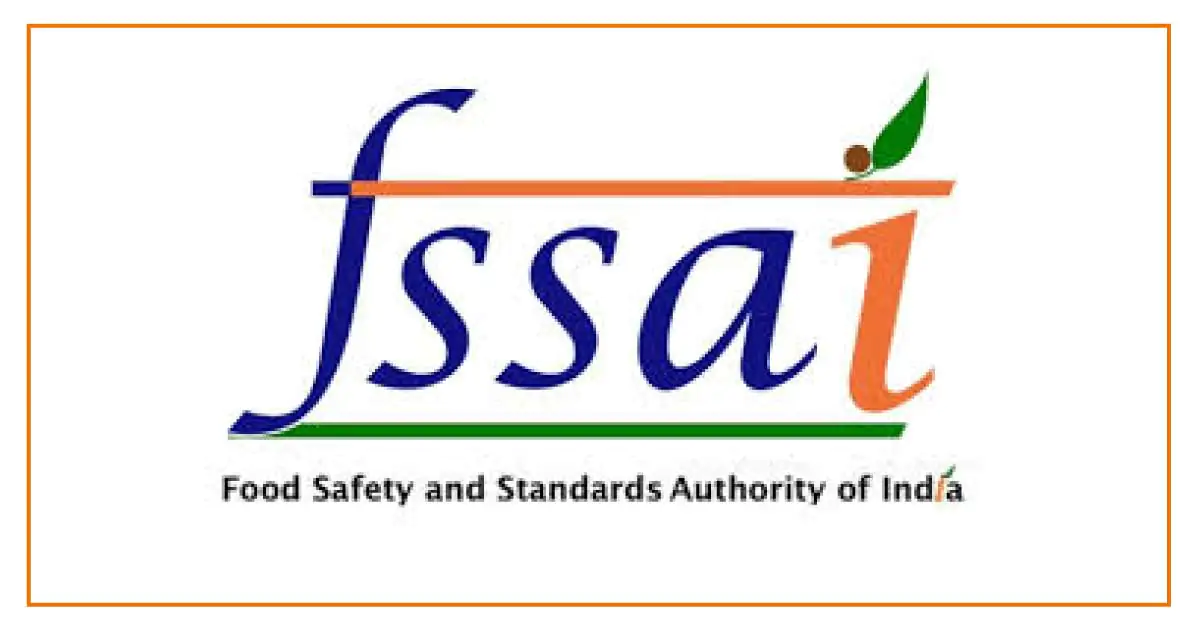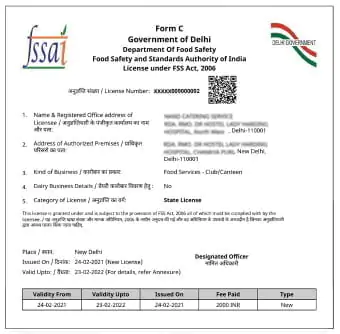Introduction FSSAI food license
In today’s fast-paced world, the significance of food safety and quality cannot be overstated. The Food Safety and Standards Authority of India (FSSAI License) plays a vital role in ensuring that the food we consume is safe, hygienic, and adheres to the highest standards. Obtaining a food license from FSSAI is not just a legal requirement but also a mark of trust and credibility for food businesses. In this article, we will delve into the details of the food license FSSAI and understand its importance for both consumers and food businesses.
What is FSSAI License
FSSAI, short for the Food Safety and Standards Authority of India, is an autonomous body established under the Ministry of Health & Family Welfare, Government of India. It is responsible for regulating and supervising the manufacture, storage, distribution, sale, and import of food products to ensure their safety and quality. FSSAI lays down the standards and guidelines for food businesses to follow, thereby safeguarding the health and well-being of consumers.
Why is FSSAI License mandatory?
The Food Safety and Standards Authority of India (FSSAI License) is a regulatory body established by the Government of India to ensure the safety and quality of food products in the country. The FSSAI food license, also known as the Food License or FSSAI Registration, is mandatory for food business operators (FBOs) in India. There are several reasons why obtaining an FSSAI food license is mandatory:
- Ensuring Food Safety: The primary objective of FSSAI is to protect the health and well-being of consumers by setting standards for food products and regulating their production, storage, distribution, and sale. The FSSAI food license ensures that FBOs comply with these standards and maintain proper hygiene and safety practices.
- Quality Assurance: The FSSAI food license helps in maintaining the quality of food products by implementing stringent guidelines for sourcing raw materials, processing, packaging, and labeling. It helps consumers make informed choices about the food they consume.
- Consumer Protection: The FSSAI food license acts as a safeguard for consumers against adulterated and substandard food products. It ensures that FBOs follow good manufacturing practices, adhere to labeling requirements, and provide accurate information about their products.
- Legal Compliance: Obtaining an FSSAI food license is a legal requirement under the Food Safety and Standards Act, 2006. Non-compliance with the regulations can lead to penalties, fines, and even imprisonment. The license helps FBOs demonstrate their commitment to meeting legal obligations.
- Industry Standardization: The FSSAI food license promotes standardization in the food industry. It establishes uniform regulations and guidelines that all FBOs must follow, regardless of their size or location. This ensures a level playing field and helps build trust among consumers.
- Market Access: The FSSAI food license is often a prerequisite for accessing various market channels such as supermarkets, hotels, restaurants, and online platforms. Many businesses and institutions require FBOs to have a valid license to ensure the safety and quality of the food products they purchase.
Types of FSSAI Food License
- Basic Registration: This is applicable to small-scale food businesses with an annual turnover of up to ₹12 lakh. These businesses need to register with FSSAI to ensure compliance with basic hygiene practices.
- State License: Medium-sized food businesses with an annual turnover between ₹12 lakh and ₹20 crore fall under this category. They require a state-level license issued by the respective State Food Safety Department.
- Central License: Large-scale food businesses with an annual turnover exceeding ₹20 crore must obtain a central license directly from the FSSAI headquarters. Importers, exporters, manufacturers, and operators in the food chain also fall under this category.
Steps to Obtain FSSAI Food License
- Determine the Category: Identify the appropriate category of food license based on the scale of your food business.
- Application Preparation: Gather all the necessary documents and information required for the license application. This includes business details, address proof, food safety management plan, and other relevant documents.
- Application Submission: Submit the completed application form along with the required documents to the respective FSSAI office. The application can also be made online through the Food Licensing and Registration System (FLRS) portal.
- Application Verification: FSSAI examines the application and conducts an inspection of the premises to ensure compliance with safety and hygiene standards.
- License Issuance: Upon successful verification, FSSAI grants the food license, which is valid for a specific duration, ranging from 1 to 5 years, depending on the category.
Conclusion
Obtaining an FSSAI food license is a crucial step for any food business to ensure compliance with food safety standards and gain consumer trust. By adhering to the guidelines set by FSSAI, food businesses contribute to a healthier and safer food ecosystem. Consumers, on the other hand, can make
Read Also:
Red Bull Effects On The Body | Side Effects of Drinking Red Bull Everyday
Cricket World Cup 2023: An Exciting Journey of Passion, Skills, and Glory
BGMI is Coming Back in India 2023
What is Jio plus ? How do I activate My Jio Plus plan? Jio plus family plan |

